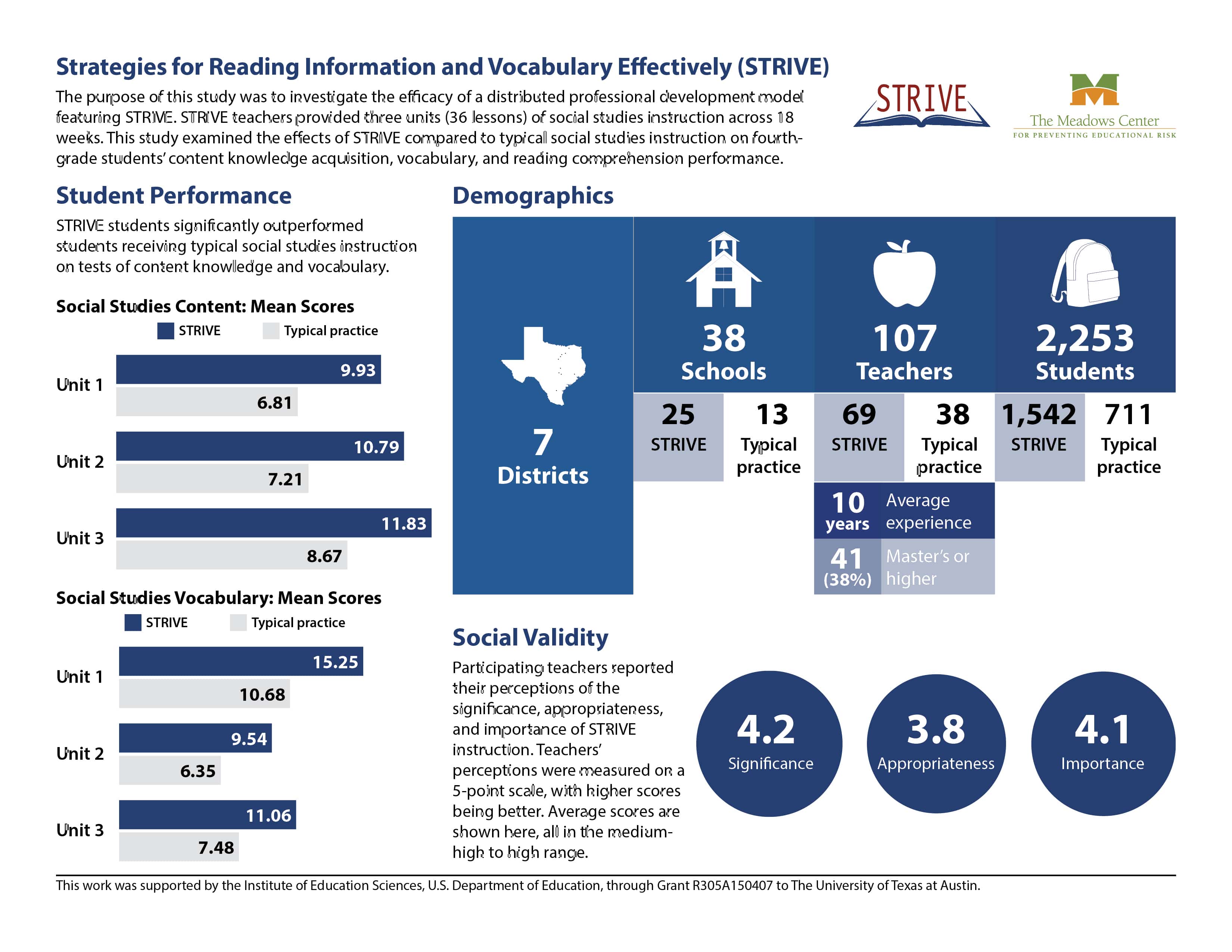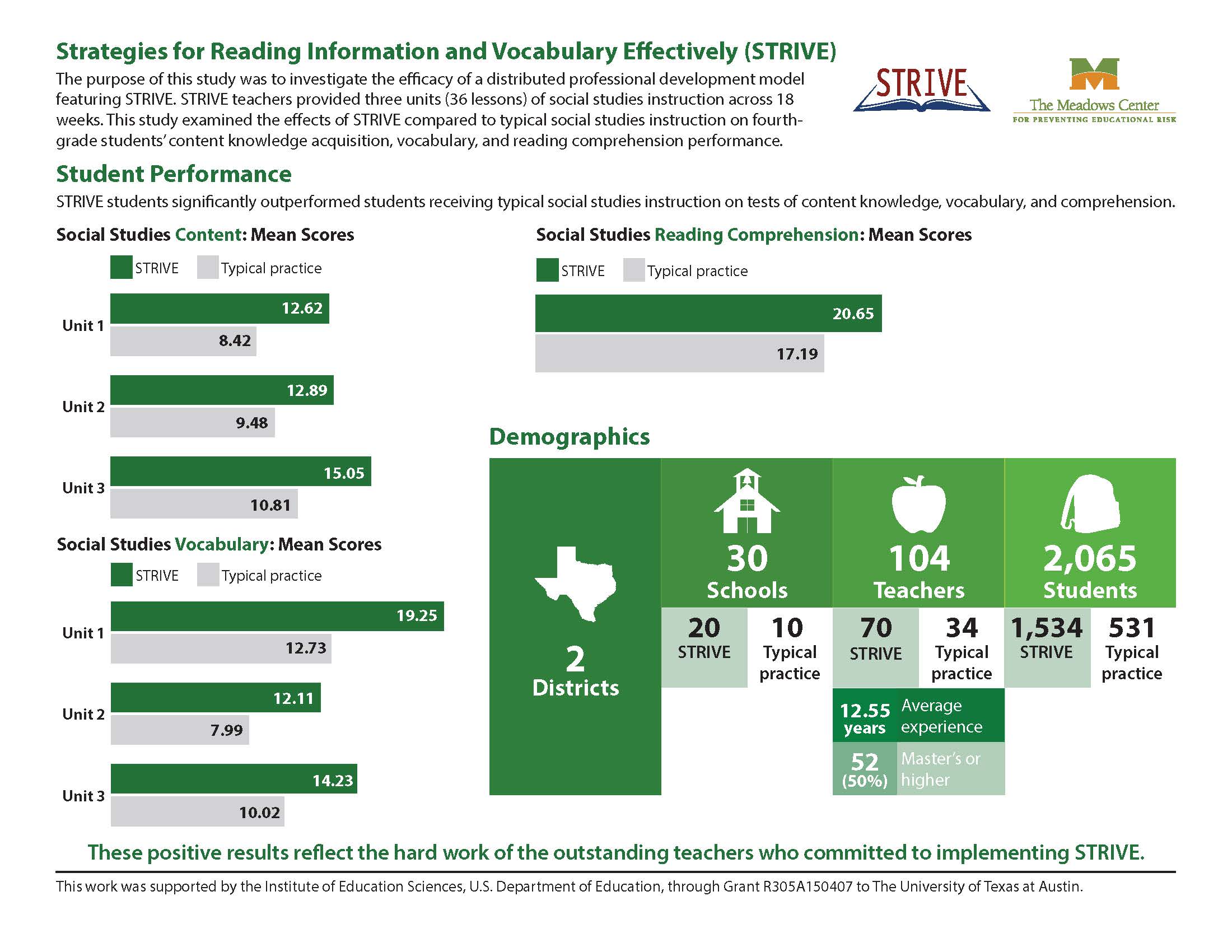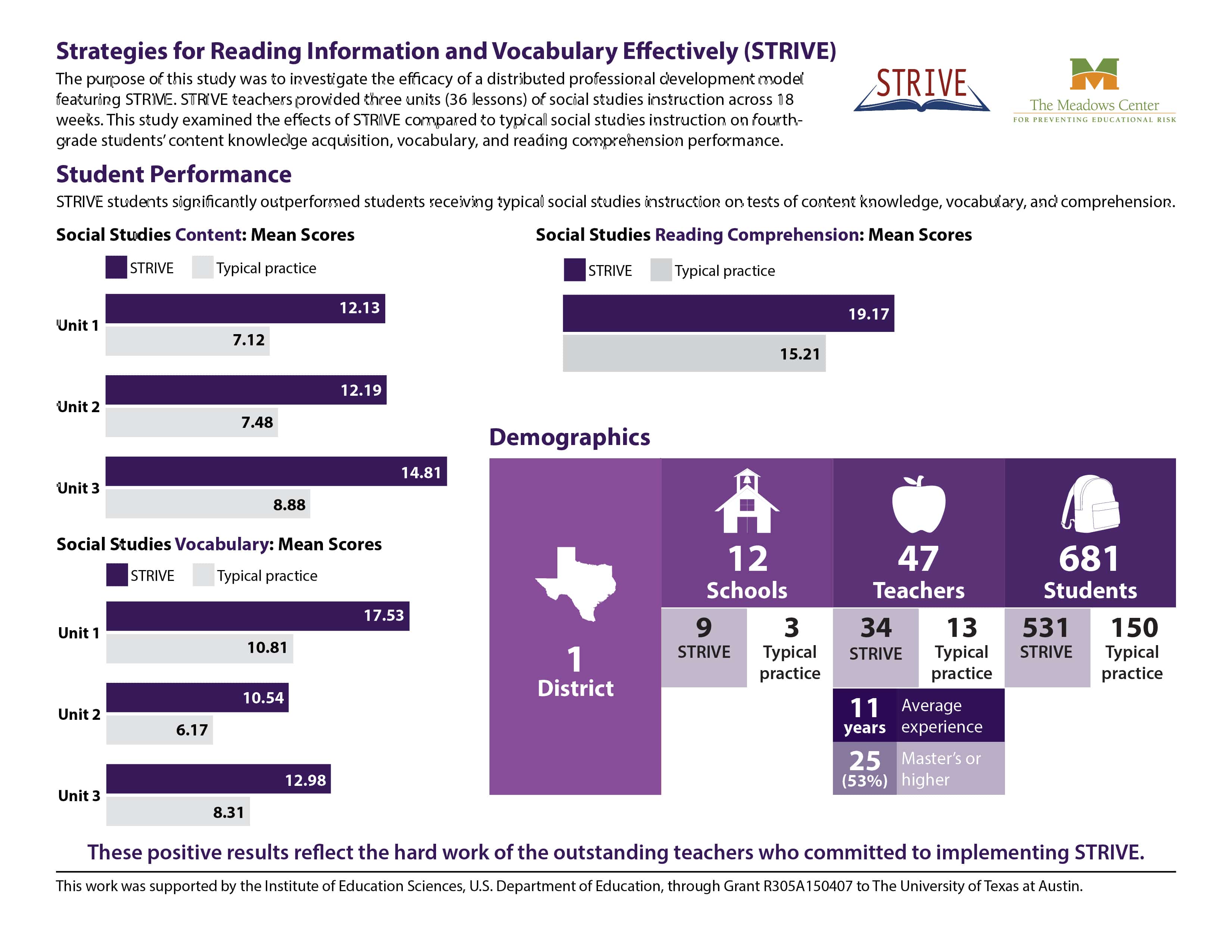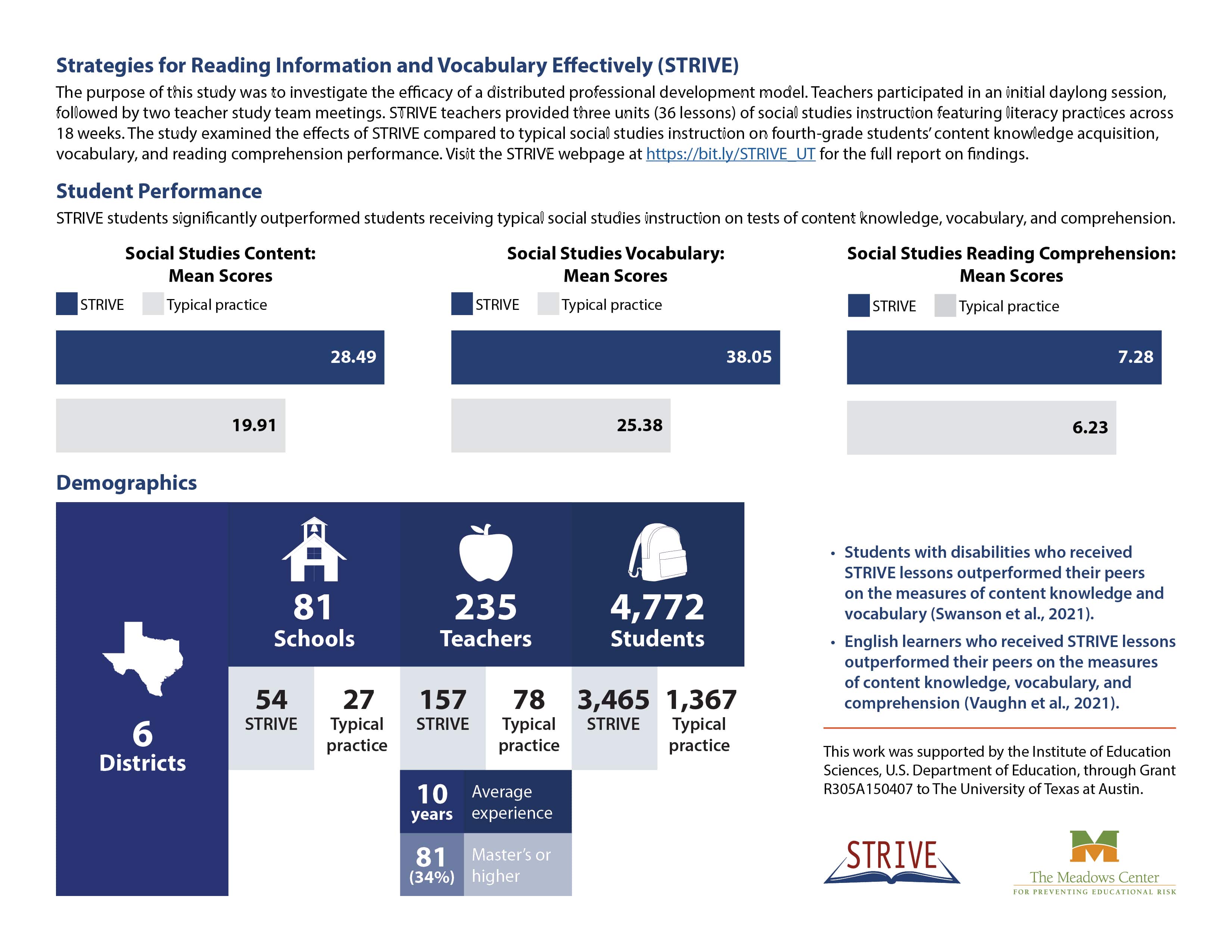Overview
This project is designed to test the efficacy of a professional development model that features Strategies for Reading Information and Vocabulary Effectively (STRIVE), a fully developed set of evidence-based practices for content area instruction with upper-elementary students. MCPER researchers and Central Texas teachers jointly developed the 18-week STRIVE lessons based on several years of experimental pilot studies. The STRIVE curriculum was designed to meet the Texas Essential Knowledge and Skills standards for vocabulary, reading comprehension, writing, and social studies. Over the course of this 3-year project, the effects of the professional development model featuring STRIVE will be examined across 81 schools with approximately 405 teachers and 4,050 students. The implementation of STRIVE practices will be supported through an ongoing professional development model.
Featured News
Project STRIVE making an impact on Texas teachers and students
Impact Statement
“I feel very grateful that our campus has been selected to participate in this program. It is everything we have always wanted out of teaching reading through expository text. Having them learn about social studies is just an amazing plus!”
— Participating teacher
STRIVE Materials
- Lessons: Teacher Manual and Student Workbook in English and Spanish
- Fillable vocabulary map forms (these work with the free Adobe Reader): Form A and Form B
Infographic: Cohort 1 Results

Infographic: Cohort 2 Results

Infographic: Cohort 3 Results

Infographic: Fully Powered Randomized Controlled Trial

Past Research on STRIVE
Applying a Cohesive Set of Comprehension Strategies to Content-Area Instruction
Examining the Impact of Teacher Quality on Students’ Comprehension and Content-Area Achievement
Research Design
Procedures
We will use a randomized controlled study design. Participating fourth-grade schools will be randomly assigned to one of two conditions: (1) STRIVE professional development or (2) typical instruction. Schools randomized to the typical instruction condition are guaranteed to receive STRIVE professional development at the end of the school year or the beginning of the following school year. STRIVE instruction will be provided for 90 minutes a week for 18 weeks.
Outcomes
Several assessments of student learning and teacher efficacy will be employed, including (a) standardized measures of reading comprehension and vocabulary and (b) researcher-developed measures of content knowledge, reading strategy use, and instructional quality.
Data Analysis
A series of hierarchical linear models will be estimated to investigate the effect of treatment on student learning outcomes.
Dataset
The full dataset is available free of charge. To discuss establishing a data-sharing agreement with The University of Texas at Austin, contact Dr. Elizabeth Swanson.
